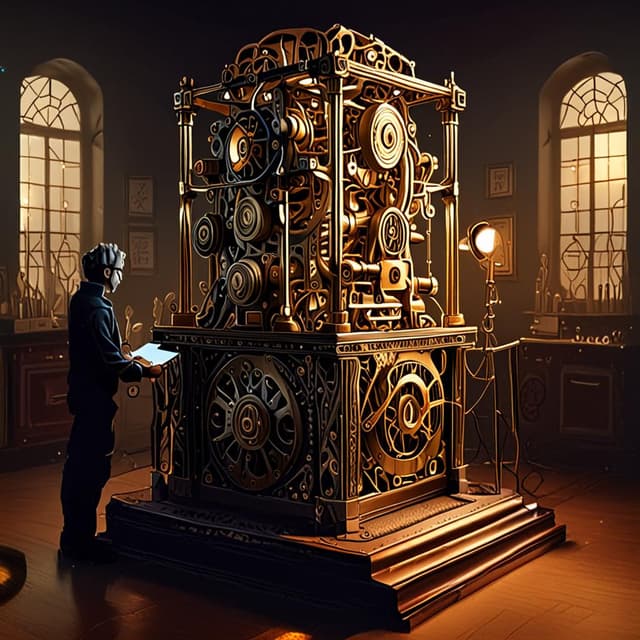
| Pioneers | Alan Turing • Other mathematicians |
| Timeline | Alternate history |
| Emphasis on | Analog simulation • Information theory |
| Implications | Slower pace of technological development • Altered societal relationship with computing |
| Primary tools | Mechanical computers |
| Field of study | Computer science |
| Notable technology | Coulomb machine • Other electromechanical computers |
| Neglected technology | Digital computers |
In an alternate timeline, computer science has evolved differently due to divergent historical developments and circumstances. Emphasizing the use of mechanical and electromechanical computers rather than digital electronic devices, the field still developed groundbreaking theories and innovations that shaped the path of technology in this world.
In this timeline, the invention of the digital electronic computer never took place, and researchers continued to focus on mechanical computing devices. These analog and mechanical computers were primarily used for complex mathematical computations, control mechanisms, and simulations. The popularity and widespread adoption of such computers paved the way for the evolution of computer science within this context.
The mathematician Alan Turing, although known for his contributions to mathematics in this timeline, did not invent the Turing machine or conceptualize the Universal Machine. Instead, following the inventions of early mechanical computers like Differential Analyzers, his work in numerical analysis laid the foundation for mathematical modeling and simulations using analog computers.
With the development of increasingly complex and powerful mechanical computers, the need for specialized programming languages became apparent. In this timeline, analog computers were programmed using specific languages that focused on analogical modelings and simulations. This placed less emphasis on algorithmic processes and instead encouraged the exploration of mathematical dynamics and probabilistic modeling.
A crucial milestone in computer science in this alternate timeline is the development of a different type of electromechanical computer—the "Coulomb machine". This machine, the product of electromagnetics research, offered a more robust and flexible approach to information processing than its mechanical predecessors. The Coulomb machine also laid the groundwork for an analogous version of information theory, which has had a broad impact across many fields of science.
The slower development of digital computing technology had long-lasting implications for society in this alternate world. As computational power and processing speed were not as widely embraced as they have been in our timeline, the overall pace of technological advancement remained fairly slow. While certain areas benefited from the use of these more rudimentary computing systems, a lack of understanding around the potential and applications of digital computation has left some societal challenges unaddressed.
In conclusion, the field of computer science in this alternate timeline follows a fundamentally different path, focusing on mechanical and electromechanical computing technology rather than embracing digital electronics. Key developments have their shares of parallel inspirations, highlighting the significance of mathematics, analogical modeling, and electromagnetism in the evolution of this alternate computer science paradigm.